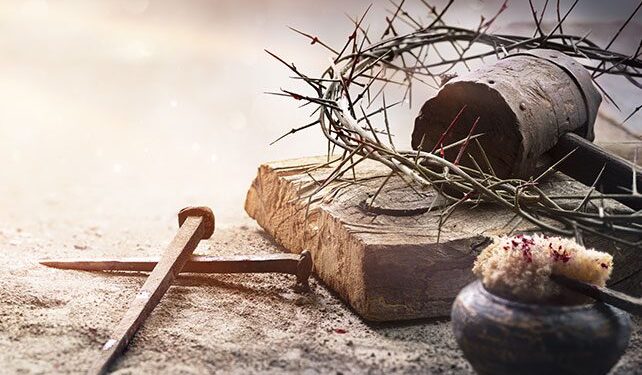Good Friday is a Christian holiday that falls on the Friday before Easter, honouring Jesus’ death at Calvary and his crucifixion. Other names for this day in the Christian calendar include Great Friday, Great and Holy Friday, and Black Friday.
Good Friday is a significant day for Christians, as it commemorates what many consider the most pivotal weekend in human history. Christians have declared that Jesus’ death on the cross and resurrection marked the crucial turning point in the history of the universe ever since. Following what God had promised in the Bible, Paul thought it “of first importance” that Jesus died for our sins, was buried, and rose from the dead on the third day. (1 Corinthians 15:3).
Many people remain perplexed about the origin of the term “Good Friday,” particularly in light of the tragic nature of the events that gave rise to its significance.
Why Is it called ‘Good’ Friday?
But why “Good Friday” rather than “Bad Friday” or another comparable term for the day of Jesus’ death? This is how some Christian traditions operate; in German, for instance, the day is known as Karfreitag, or “Sorrowful Friday.” Some claim that the ancient moniker “God’s Friday” is where the English word “good” originated. Regardless of where it came from, the name Good Friday is fitting because Jesus’ horrendous suffering and death signalled the dramatic conclusion of God’s plan to deliver his people from their sins.
We must first comprehend the awful news of our status as guilty sinners before the good news of the gospel can have any meaning for us. Only after realising our state of slavery can the wonderful news of deliverance be understood. We must understand and make a distinction between the law and the gospel in Scripture. The law must first demonstrate how helpless we are before the gospel of Jesus’ love can provide us comfort and deliverance.
Similar to this, Good Friday is considered “good” because, despite the horror of that day, we needed to experience the joy of Easter. For forgiveness and redemption to be offered to the world, God’s anger against sin had to be poured out on Jesus, the ideal animal sacrifice. Without the cross’s anguish, sorrow, and bloodshed, God couldn’t be “just and the justifier” of those who trust in Jesus. (Romans 3:26). Ironically, God’s beautifully good plan to free the world from slavery was put to death on the day that appeared to be the most significant victory for evil.
We witness the meeting of extreme agony and God’s mercy on the cross. A day when “righteousness and peace” shall “kiss each other” is described in Psalms 85:10. This happened on Jesus’ cross, when God’s demands, His righteousness, and His mercy met. God extends His forgiveness, kindness, and peace to us because Jesus voluntarily accepted our divine punishment —the result of God’s righteousness against sin. He eagerly anticipated the joy that awaited him. (Hebrews 12:2). On Good Friday, Jesus suffered the cross because He knew it would result in his resurrection, our salvation, and the establishment of God’s just and peaceful reign.
Good Friday marks the day on which justice and mercy collided at the cross. For this reason, Good Friday is both gloomy and good.
Bible Verses about Good Friday
Romans 5:6-10 – “You see, at just the right time, when we were still powerless, Christ died for the ungodly. Very rarely will anyone die for a righteous person, though for a good person, someone might dare to die. But God demonstrates his own love for us in this: While we were still sinners, Christ died for us. Since his blood has now justified us, how much more shall we be saved from God’s wrath through him! For if, while we were God’s enemies, we were reconciled to him through the death of his Son, how much more, having been reconciled, shall we be saved through his life!”
1 Peter 2:24 – “He himself bore our sins” in his body on the cross, so that we might die to sins and live for righteousness; “by his wounds you have been healed.”
Isaiah 53:3-5 – “He was despised and rejected by mankind, a man of suffering and familiar with pain. Like one from whom people hide their faces he was despised, and we held him in low esteem. Surely he took up our pain and bore our suffering, yet we considered him punished by God, stricken by him, and afflicted. But he was pierced for our transgressions, he was crushed for our iniquities; the punishment that brought us peace was on him, and by his wounds we are healed.”
John 3:16-17 – “For God so loved the world, that he gave his only Son, that whoever believes in him should not perish but have eternal life. For God did not send his Son into the world to condemn the world, but in order that the world might be saved through him.”
Mark 9:31 – “For he was teaching his disciples, saying to them, “The Son of Man is going to be delivered into the hands of men, and they will kill him. And when he is killed, after three days he will rise.”
What can you eat on Good Friday?
It is customary to eat fish on Good Friday rather than meat.
Christians believe that Jesus sacrificed his flesh on what is now known as Good Friday. This is why people typically refrain from eating meat on Good Friday.
On Good Friday, fish is often preferred over beef, as it is considered a distinct type of flesh.
Additionally, Christians utilised fish-shaped symbols to identify one another, and many of Jesus’ disciples are thought to have been fishermen.











